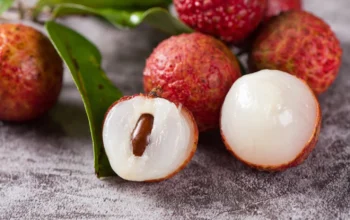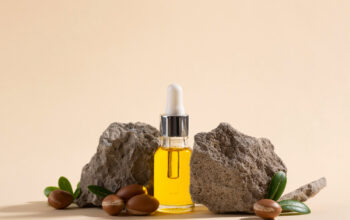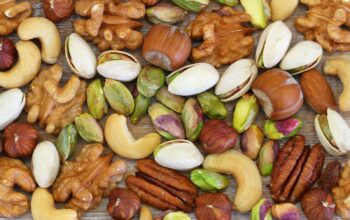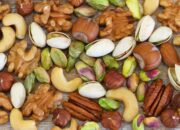An intriguing beverage with potential health advantages is cinnamon tea. It is manufactured from the inner bark of the cinnamon tree, which forms the familiar cinnamon sticks when it dries and twists into rolls. To prepare tea, these sticks are either ground into a powder or steeped in boiling water.

These are 12 health advantages of cinnamon tea supported by science.
1. Packed with protective agents
Numerous antioxidants, which are advantageous substances that support good health, can be found in cinnamon tea. Free radicals are molecules that damage your cells and are linked to conditions including diabetes, cancer, and heart disease. Antioxidants prevent oxidation brought on by free radicals. Antioxidants rich in polyphenols are especially abundant in cinnamon. Cinnamon is only surpassed by cloves and oregano in a study assessing the antioxidant activity of 26 different spices.
Furthermore, studies indicate that drinking cinnamon tea can raise your body’s total antioxidant capacity (TAC), a measurement of how many free radicals it can fend off. In brief One of the spices with the highest antioxidant content is cinnamon. Your body’s capacity to fend off free radicals may be strengthened by cinnamon tea, keeping you disease-free and healthy.
2. Reduces inflammation and could strengthen the heart
Studies conducted in test tubes indicate that certain components in cinnamon may lower inflammatory indicators. Considering that inflammation is assumed to be the primary cause of numerous chronic illnesses, including heart disease, this could be quite advantageous. Additionally, studies suggest that cinnamon may lower blood pressure, triglyceride, and LDL (bad) cholesterol levels in certain people.
Moreover, cinnamon may raise HDL (good) cholesterol levels, which lower bad cholesterol from blood arteries and support heart health. According to a study of ten research, you may be able to obtain these advantages with as little as 120 mg of cinnamon per day, or less than one-tenth of a teaspoon.
Specifically, cassia cinnamon has a high concentration of naturally occurring coumarins, a class of chemicals that protects against blood clots and helps stop blood arteries from narrowing (10, 11, 12). But be careful—consuming too much coumarin can impair liver function and raise the risk of bleeding.
Instead, stick to a moderate amount of cinnamon. In brief Heart-healthy substances found in cinnamon may reduce inflammation and increase HDL (good) cholesterol. Additionally, it might lower your levels of triglycerides, LDL (bad) cholesterol, and blood pressure.
3. Could aid in lowering blood sugar
Cinnamon lowers blood sugar levels, which may have potent antidiabetic effects. This spice seems to function similarly to the hormone insulin, which is in charge of transferring sugar from the bloodstream into your tissues. Additionally, chemicals in cinnamon may help lower blood sugar levels by reducing insulin resistance, which will boost the efficiency of insulin.
Additionally, cinnamon may lessen the rate at which carbohydrates are broken down in the stomach, reducing a spike in blood sugar levels after meals. The majority of research found that taking strong quantities of powdered cinnamon, ranging from 120 mg to 6 grams, had positive effects. There is evidence, though, that cinnamon tea may also have benefits for lowering blood sugar levels.
In brief Cinnamon may improve the efficiency of insulin by lowering blood sugar and insulin resistance. These outcomes might provide defense against type 2 diabetes.
4. Could encourage losing weight
Many studies have connected cinnamon consumption to reductions in waist circumference or fat loss, which supports the claims made about cinnamon tea’s ability to aid in weight loss. Most of these studies, however, have not been able to differentiate between muscle loss and fat loss, and only a small number of them have adequately accounted for calorie intake.
This makes it challenging to credit cinnamon alone for the weight loss benefits. The one trial that adjusted for these variables found that after consuming the equivalent of five teaspoons (10 grams) of cinnamon powder daily for a 12-week period, individuals gained 1.1% of muscle mass and lost 0.7% of fat mass.
But such high concentrations of cinnamon can also include extremely high levels of coumarin. This natural substance can aggravate liver illness and raise the risk of bleeding when taken in excess. Particularly with Cassia cinnamon, which has up to 63 times more coumarin than Ceylon cinnamon, this is true. If there are any benefits to weight loss at lower levels, like those in cinnamon tea, more research is required to validate them.
In conclusion, consuming a lot of cinnamon tea might aid in fat loss, but it also contains potentially harmfully high concentrations of coumarin. To determine whether smaller dosages also aid in weight loss, more research is required.
5. Destroys fungus and bacteria
Strong antibacterial and antifungal qualities can be found in cinnamon. For example, studies conducted in test tubes reveal that the primary active ingredient in cinnamon, cinnamaldehyde, inhibits the growth of a variety of bacteria, fungi, and molds. These include bacteria that can make people sick, such as Salmonella, E. Coli, and common Staphylococcus.
Furthermore, the antimicrobial properties of cinnamon may aid in preventing dental decay and reducing bad breath. However, before firm conclusions can be drawn, more human study is required. In brief The compounds in cinnamon tea have antimicrobial and antifungal properties. They might also aid in dental decay prevention and breath freshening.
6. May lessen PMS symptoms such as cramping during the menstrual cycle
Premenstrual syndrome (PMS) and dysmenorrhea are two examples of menstrual symptoms that may be easier to tolerate with cinnamon tea. In one carefully monitored trial, women were given either a placebo or three grams of cinnamon daily for the first three days of their menstrual cycle. Compared to the women given a placebo, the women in the cinnamon group reported considerably less menstruation discomfort.
In a another trial, during the first three days of their menstrual cycle, women were given 1.5 grams of cinnamon, a medication to relieve discomfort, or a placebo. Compared to the women receiving a placebo, the women in the cinnamon group reported less menstruation pain. But compared to the painkiller, the cinnamon therapy was less successful in alleviating pain.
Additionally, studies have shown that cinnamon may lessen the degree of nausea, frequency of vomiting, and menstrual bleeding in women. In brief PMS symptoms and excruciating menstrual cramps may be lessened by cinnamon tea. In addition, it could lessen nausea and vomiting that come with the menstrual cycle.
7–11. Additional possible advantages
Cinnamon tea is said to have a number of other advantages, such as:
- Could prevent aging skin. According to studies, cinnamon may enhance the production of collagen, improve skin suppleness, and moisturize the skin, all of which may lessen the signs of aging.
- Possess potential anticancer effects. Cinnamon extracts have been shown in test-tube studies to potentially aid in the death of some cancer cell types, including skin cancer cells.
- Might aid in maintaining brain function. According to studies conducted on animals and test tubes, cinnamon may help people with Parkinson’s disease enhance their motor function and shield brain cells from Alzheimer’s disease.
- Might aid in the HIV fight. According to research conducted in test tubes, cinnamon extracts may be able to combat the most prevalent form of the HIV virus in humans.
- Might lessen acne. Studies conducted in test tubes indicate that cinnamon extracts may be able to combat acne-causing germs.
Despite the encouraging nature of this cinnamon research, there is currently no proof that consuming cinnamon tea will have these advantages. Thorough investigation is necessary prior to drawing firm findings. In brief Cinnamon may also help prevent HIV, cancer, acne, Alzheimer’s, and Parkinson’s diseases, as well as slow down the aging process of the skin. But more investigation is required.
12. Simple to include in your diet
It’s really simple to prepare and include cinnamon tea in your diet. It can be chilled to make homemade iced tea, or consumed warm. The simplest method to prepare this drink is to boil one cup (235 ml) of water, add one teaspoon (2.6 grams) of ground cinnamon, and stir. Alternatively, you can steep a cinnamon stick in boiling water for ten to fifteen minutes to produce cinnamon tea.
As an alternative, you can purchase cinnamon tea bags online, at your neighborhood health food store, or supermarket. When you’re pressed for time, they’re a practical choice. Since cinnamon tea doesn’t contain caffeine by nature, it can be savored at any time of day. But if you’re really interested in how it lowers blood sugar, it might work best if you take it with meals.
Before including cinnamon tea into your regimen, it’s best to speak with your doctor if you’re currently taking medicine that lowers blood sugar. In brief Making cinnamon tea is quite simple. It is a beverage that tastes good both warm and cold.
In summary
Tea with cinnamon is a potent beverage. Rich in antioxidants, it provides a host of health advantages, such as lowered blood sugar and inflammation, strengthened heart health, and possibly even weight loss. In addition to preventing infections, cinnamon tea may lessen PMS and menstrual pains. It’s absolutely worth tasting cinnamon tea, whether you prefer it warm or cold.











Response (1)